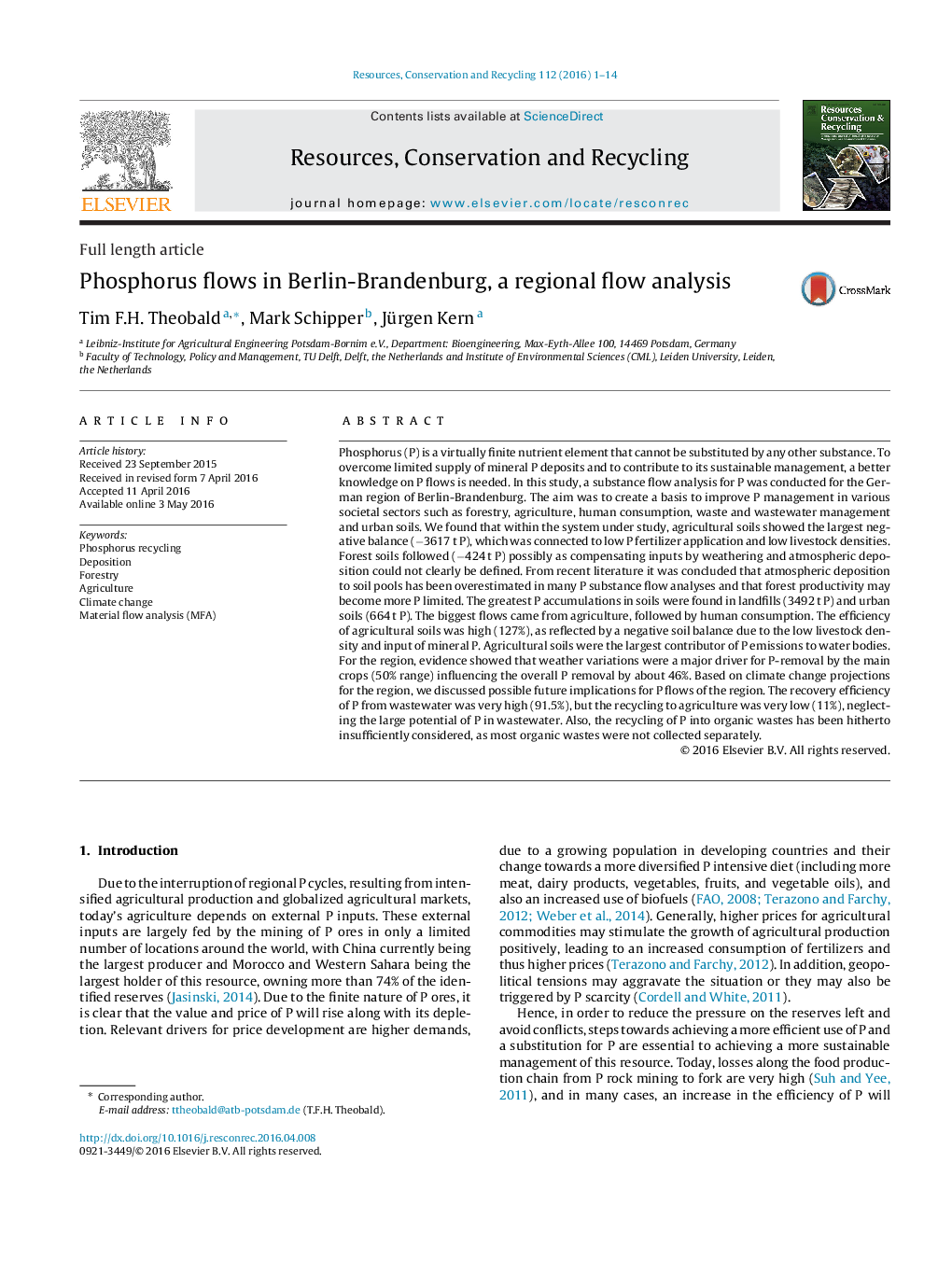| Article ID | Journal | Published Year | Pages | File Type |
|---|---|---|---|---|
| 7494803 | Resources, Conservation and Recycling | 2016 | 14 Pages |
Abstract
Phosphorus (P) is a virtually finite nutrient element that cannot be substituted by any other substance. To overcome limited supply of mineral P deposits and to contribute to its sustainable management, a better knowledge on P flows is needed. In this study, a substance flow analysis for P was conducted for the German region of Berlin-Brandenburg. The aim was to create a basis to improve P management in various societal sectors such as forestry, agriculture, human consumption, waste and wastewater management and urban soils. We found that within the system under study, agricultural soils showed the largest negative balance (â3617Â t P), which was connected to low P fertilizer application and low livestock densities. Forest soils followed (â424Â t P) possibly as compensating inputs by weathering and atmospheric deposition could not clearly be defined. From recent literature it was concluded that atmospheric deposition to soil pools has been overestimated in many P substance flow analyses and that forest productivity may become more P limited. The greatest P accumulations in soils were found in landfills (3492Â t P) and urban soils (664Â t P). The biggest flows came from agriculture, followed by human consumption. The efficiency of agricultural soils was high (127%), as reflected by a negative soil balance due to the low livestock density and input of mineral P. Agricultural soils were the largest contributor of P emissions to water bodies. For the region, evidence showed that weather variations were a major driver for P-removal by the main crops (50% range) influencing the overall P removal by about 46%. Based on climate change projections for the region, we discussed possible future implications for P flows of the region. The recovery efficiency of P from wastewater was very high (91.5%), but the recycling to agriculture was very low (11%), neglecting the large potential of P in wastewater. Also, the recycling of P into organic wastes has been hitherto insufficiently considered, as most organic wastes were not collected separately.
Keywords
Related Topics
Physical Sciences and Engineering
Energy
Renewable Energy, Sustainability and the Environment
Authors
Tim F.H. Theobald, Mark Schipper, Jürgen Kern,
